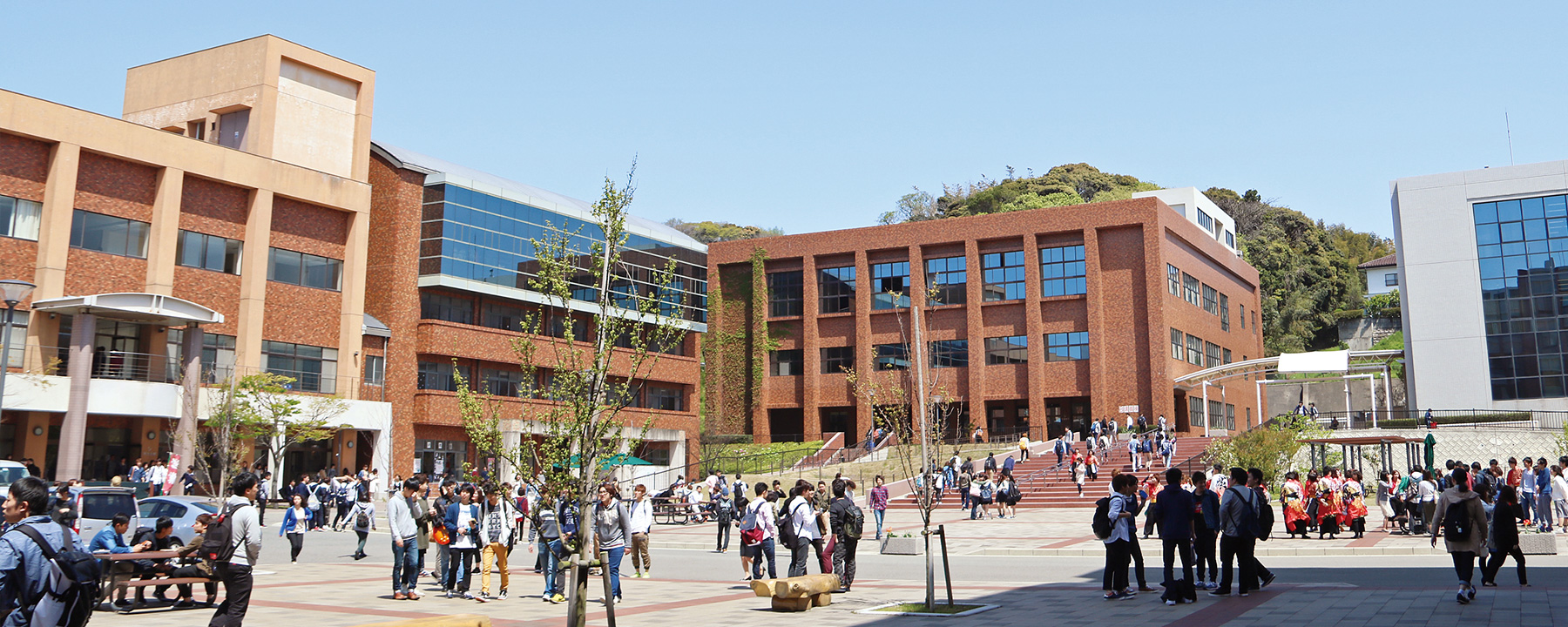- Home
- Undergraduate / Department / Graduate School
- Teacher Information
- Teacher Information (Degree and Achievements)
- Teacher Details
Teacher Information (Degree and Achievements)
Teacher Details


SATO Takashi
SATO Takashi
- Affiliation
- Graduate School Graduate School of Economics Faculty of Economics Department of Economics
- Job rank
- Professor
- Position
Researcher Information
Area of expertise
Industrial Organization Theory, Economics of Social Welfare (Family Economics)
Courses in charge
Industrial organization theory I/II, econometrics I/II, specialized exercises I/II, basic exercises
Educational background
1988. 3 Graduate School of Nagoya University, Graduate School of Economics
1991. 3 Graduate School of Social Sciences, Tokyo Metropolitan University
Acquired degree
Master of Economics
Affiliated Society
Japanese Economic Association, Japan Society of Monetary Economics, Japan Society of Economics, Japan Applied Society of Economics, China and Shikoku Society of Commerce and Economics
Research Keywords
Current research theme
[Industrial organization theory]
Theoretical industrial organization theory that applies game theory is the main research theme. We elucidate the mechanism of industrial development by capturing the impact of strategic actions by companies and government policies on the development and evolution of the industry.
Economics of Social Welfare (Family Economics)
Based on the economics of the family, we are working to elucidate various welfare issues from an economic perspective. For example, we have created a model that endogenously determines the number of births in relation to heritage motivation, and have examined the issue of declining birthrate. In the future, we would like to elucidate the issues of social welfare in the relationship between the local community and their families.
Main research results and activities
1.On Cournot-Bertrand Mixed Duopolies, Japanese Economic Review, 1996, vol.47, No.4, pp.412-420.
2.Government transfers and Smaritan’s dilemma in the family, Public Choice, 2004, vol.118, pp.77-86. (with R. Futagami and K. Kamada)
3.Bequest Motives and Fertility Decisions, Economics Letters, 2006, vol.92, pp.348-352. (with R. Futagami and K. Kamada)
4.Altruism, Environment Externality and Fertility, Discussion Paper Series, No.0607, Institute of Economics, Chukyo University, 2006. (with M.Hirazawa and K. Kamada)
5.Altruism, Liquidity Constraint and Education Investment, Discussion Paper Series, No.0803, Institute of Economics, Chukyo Univerty, pp.1-31, 2008. 8.(with Ihori,T and K. Kamada)
6.“The Impact of Public Pensions and Long-Term Care Insurance on the Interdependence of Parents and Children: Analysis taking into account the selection of residences”: FY2009-20 Grants for Scientific Research (C) (Problem number: 19600002), June 2009 (Co-authored with Mr. Kamata)
7.Chapter 5 "Mechanisms of Dependency and Competition" centered on middle wholesalers, edited by Hidetsugu Hamada, "Shimonoseki Fugu's Brand Economics I" at Tsukuba Shobo, pp. 61-69 September 2009
8."The Significance and Limitations of Regulation by Antitrust Law on Low Prices - From the Perspective of Industrial Organizations" Kyushu Law Association Bulletin, pp. 67-71, 2010
9.“Theoretical Consideration in the Changing Fugu Distribution Market: Comparison between Market Transactions and Non-Market Transactions” edited by Hidetsugu Hamada, “Shimonoseki Fugu’s Brand Economics II,” Tsukuba Shobo, Chapter 5, pp. 86-104,2012.
10.Existence and Uniqueness of Nash Equilibrium in Aggregative Games: An Expository Treatment, Pierre von Mouche and Federico Quartieri ed.
Equilibrium Theory for Cournot Oligopolies and Related Games,Chapter 3, pp.47-61, Springer International Publishing Switzerland, 2016. (with R.Cornes)
11."Comparison between Optimal Distributed Shipping Strategy by Simulation Model and Post-Outed (Mt. Yarigatake) Shipping Pattern", edited by Hidetsugu Hamada, "Miyagi Ginzake Farming Production Area Regeneration Issues -Towards New Production Area Management -" Fisheries Industry Promotion, No. 580 (Vol. 50 No. 4) pp.71-83, 2016
12.Altruism, Liquidity Constraint and Investment in Education, Journal of Public Economic Theory, Vol. 19, Issue 2, pp.409-425, 2017.(with T.Ihori and K.Kamada)
13.On Cournot Equilibria Uniqueness: at 0 Discontinuous Industry Revenue and Decreasing Price Flexibility, International Game Theory Review, 2019, 21, issue 2, pp.1-19. (with Pierre von Mouche)
14.Altruism, Environment Externality and Fertility. Environment and Development Economics, Vol. 24, Issue 3, pp.317-338, 2019. (with Makoto Hirazawa and Kimiyoshi Kamada)
Classes and Seminars
My seminar
A.The goal is to take up various issues related to corporate strategy as case studies, and to learn specific corporate strategy. In fact, all members of the seminar discuss how the company should address the strategic issues that have arisen in the company, and explore the ideal way of corporate strategy.
B.Learn about behavioral economics, which has made remarkable progress in recent years. Through experimental observations of living human beings, we will consider what actions are taken in reality, and aim to reconstruct economics through this.







